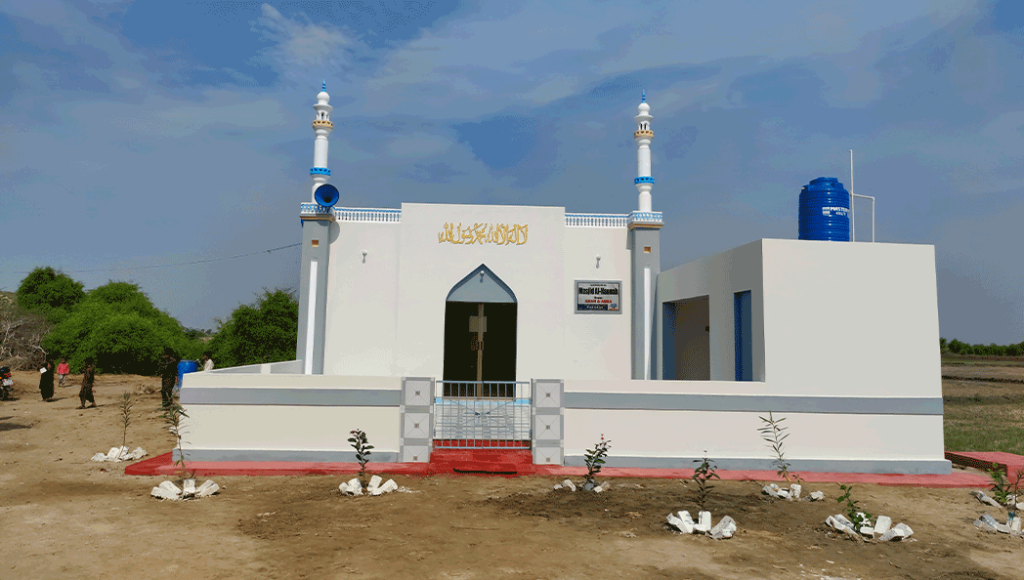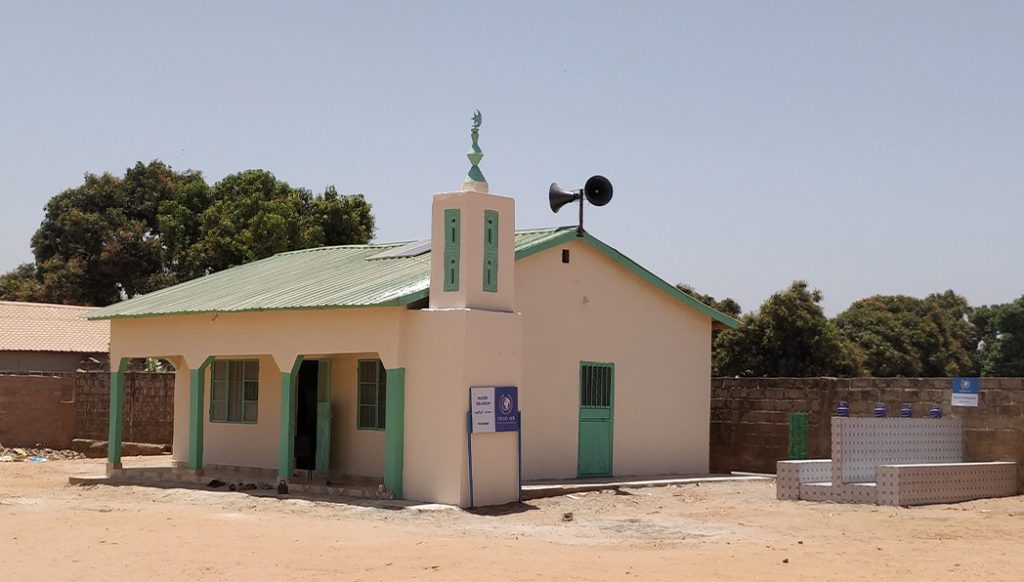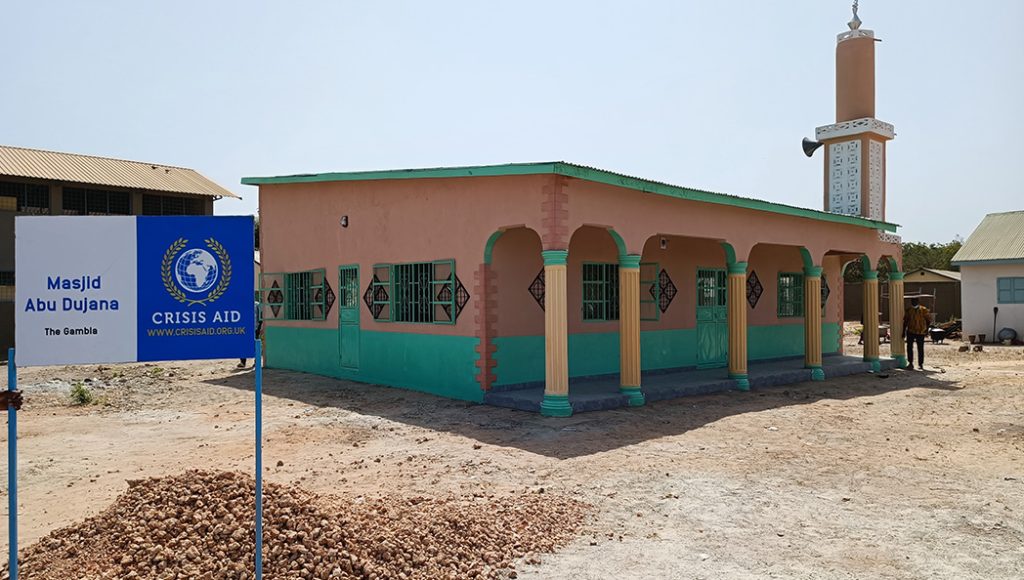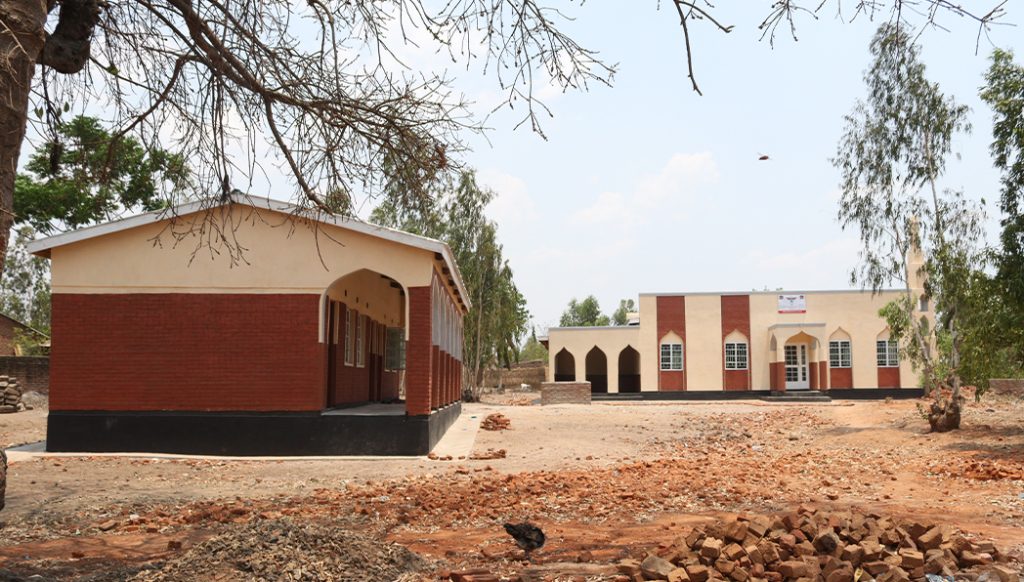Building A Masjid
Support the construction of a Masjid, providing a place of worship and spiritual growth
Small Masjid in Pakistan
Small Masjid in Gambia
Large Masjid in Gambia
Masjid and School
Establish a House of Worship
Your generosity, be it through Sadaqah or Zakat, brings real change to those who need it the most. Thanks to your support, we provide urgent aid when disasters strike,
fund long-term programs in education and healthcare and empower vulnerable communities to rebuild their lives. Together, we turn compassion into tangible impact,
helping families overcome challenges and build a brighter future.
A Masjid serves as a sanctuary where Muslims can pray, seek knowledge, and strengthen their connection with Allah. It fosters unity, provides religious education, and supports those in need. By contributing to building a Masjid, you earn continuous rewards (Sadaqah Jariyah) for every prayer and act of worship performed within its walls.
Frequently asked questions
Find answers to common questions about Masjid construction, donation process, ownership, maintenance, and project timelines.
Crisis Aid receives numerous requests for building Masjids. Each request undergoes a thorough review to assess suitability. For instance, constructing a new Masjid near an existing one may not be appropriate. The team evaluates factors such as community need, population density, and the presence of existing facilities. Once a donor is confirmed, the ground team conducts a site visit to finalize the location's suitability.
During the feasibility process, land ownership is verified to ensure it belongs to the community or the individual making the request. This step ensures that the land is legally available for Masjid construction and will serve the intended community without disputes.
Crisis Aid operates turnkey projects. After completing the Masjid, it is handed over to the requesting party or local community. They are then responsible for managing operational aspects, including salaries for the Imam and any teachers. While donors can contribute towards these ongoing costs to support the community, it is not mandatory.
Although durable materials like chip concrete flooring and wipeable oil paints are used, regular maintenance is necessary due to constant use. This includes repainting every few years, servicing sewage systems, and maintaining any installed solar power systems. Donors can choose to contribute towards these maintenance costs to ensure the Masjid remains in good condition, but it is not a requirement.
The construction process typically takes around 12-24 months from the time of donation. Factors that may affect this timeline include the number of projects in the construction queue, seasonal considerations like Ramadan (when physical work may slow down), and weather conditions such as heavy rains that can impact site accessibility. Crisis Aid commits to keeping donors informed of any delays.
Yes, donors are encouraged to maintain an active interest in their sponsored projects. Visits can be arranged by contacting Crisis Aid, who will facilitate the trip. It is advised not to organize visits independently, especially to schools, to adhere to safeguarding procedures and to respect local protocols.
For further inquiries or to discuss additional support options, please contact Crisis Aid at 0333 305 5000 or email [email protected]



